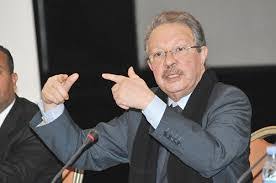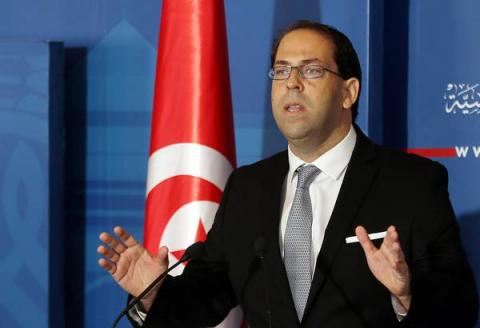The terrorist cell recently dismantled in several Moroccan cities was a strategic project of the “Daesh wilaya in the Sahel” to set up its branch in Morocco, Director of Morocco’s Central Bureau of Judicial Investigations (BCIJ) Cherkaoui Habboub said on Monday in Salé.
Speaking at a press briefing organized by the BCIJ, Habboub stated that “the danger of this cell is not only reflected in the number of targets arrested, but also as it is a project by the +wilaya of Daesh in the Sahel+ to set up a branch in the Kingdom”.
“This observation is confirmed as this cell was managed by the Sahelian branch’s +External Operations Committee+, which instructed members of the dismantled entity to form a select committee i order to co-coordinate terrorist plots, their execution and the transmission of orders to other members”, he stressed.
Elaborating on the main traits and links of this cell with terrorist organizations operating in the Sahel, Habboub stated that the number of suspects arrested to date has reached 12, aged 18 to 40.
With regard to the profile of those arrested, the BCIJ director mentioned that eight of them had stopped their studies at secondary school level, three stopped at primary education and only one had finished the first year of university.
Socially, he noted, only two members were married with children, while their professional situations were similar, with the majority working in modest and minor activities.
Habboub also pointed out that the preliminary handling of this case had revealed that members of this terrorist cell were closely linked to members of the “external operations committee” of the “Daesh” Sahelian branch, headed by Adnan Abou Walid al-Sahraoui (deceased). It also unveiled that the terrorist project of members of this cell received the blessing of the Daesh’s Sahelian branch, as they recently obtained a video recording inciting them to carry out the operations, thus greenlighting the execution phase of the subversive operations.
“While all attempts by Al-Qaeda in the Islamic Maghreb (AQIM), as well as groups stemming from it or affiliated to ”Daesh”, to set up branches in Morocco have failed, the dismantling of this cell, just a few weeks after the neutralization of the +three brothers’+ cell in Had Soualem (suburb of Casablanca), confirms that the Kingdom of Morocco, in view of its commitment to international counter-terrorism efforts, remains a priority target on the agenda of all terrorist groups active in the Sahel region”, he pointed out.
In this respect, Habboub recalled that Moroccan security services were the first to alert the international community to the strategic importance of the African continent in the agenda of al-Qaeda, the matrix of all current terrorist groups that have contributed to the chaotic situation prevailing in many Sahelian countries. It is the reason why Moroccan services have remained in a state of maximum alert to anticipate, counter and abort any threat from terrorist groups, which have proven links with separatist militias and organized crime networks in the region.
In this context, the BCIJ director recalled that Moroccan security services had dismantled more than 40 cells with direct links to terrorist organizations in the Sahel region and sub-Saharan Africa, some of which specialized in sending Moroccan fighters to receive paramilitary training before they returned home to commit terrorist acts, while others operated under the direct control of “war emirs” affiliated to these organizations.
For instance, Habboub mentioned the terrorist cell dismantled in December 2005 in Tangier, led by the so-called “Ibrahim”, which had connections in Spain as well as with the ex-GSPC which had by then evolved in the Sahel-Saharan zone. Investigations revealed that the group’s emir had spent two months in a training camp in Mali, before being entrusted with the mission of creating a logistical and human base to prepare a series of attacks in Morocco, with the support of a North African explosives expert.
The discovery of the weapons cache in the Errachidia region, he continued, was reminiscent of the AQIM-linked Amgala cell dismantled in January 2011. Likewise, this cell had a heavy weapons depot located 220 km from Laâyoune, accessible only via the geolocation system, provided at the time by a single individual, following the same procedure adopted by the present structure. This stands as a common point between the two cells, in addition to the remote management procedure. Asa reminder, the Amgala cell was run from Mali by the deceased Moroccan AQIM executive Noureddine El Youbi.
According to the director of the BCIJ, “while the ongoing investigation aims to determine any additional links between the members of this cell and to reveal its potential cross-border connections, it is essential to stress that this security operation confirms that African branches of ‘Daesh’ and consorts tend to internationalize their activities, through the revival of external operations under the leadership of the parent matrix”.
“This is illustrated by the presence, within their ranks, of a large number of foreign fighters of various nationalities, as demonstrated by the attack carried out on December 31, 2024 by the Somali branch of +Daesh+ against the armed forces of Puntland, executed exclusively by foreign fighters, including two Moroccan suicide bombers who perished during the operation”, Habboub recalled.
The Sahel and sub-Saharan Africa region is currently considered to be the hotbed of intense activity by terrorist groups, who take advantage of several factors conducive to their survival, including ethnic and tribal conflicts, political instability, the size of territories, the difficulties encountered by regional states in establishing their authority, and the confluence of these terrorist groups’ activities with those of criminal gangs.
This situation, the BCIJ director concluded, poses a real threat to North African countries, as well as to European states, in a context where terrorist leaders are seeking to show their ability to adapt to developments and setbacks in certain areas under their influence.



